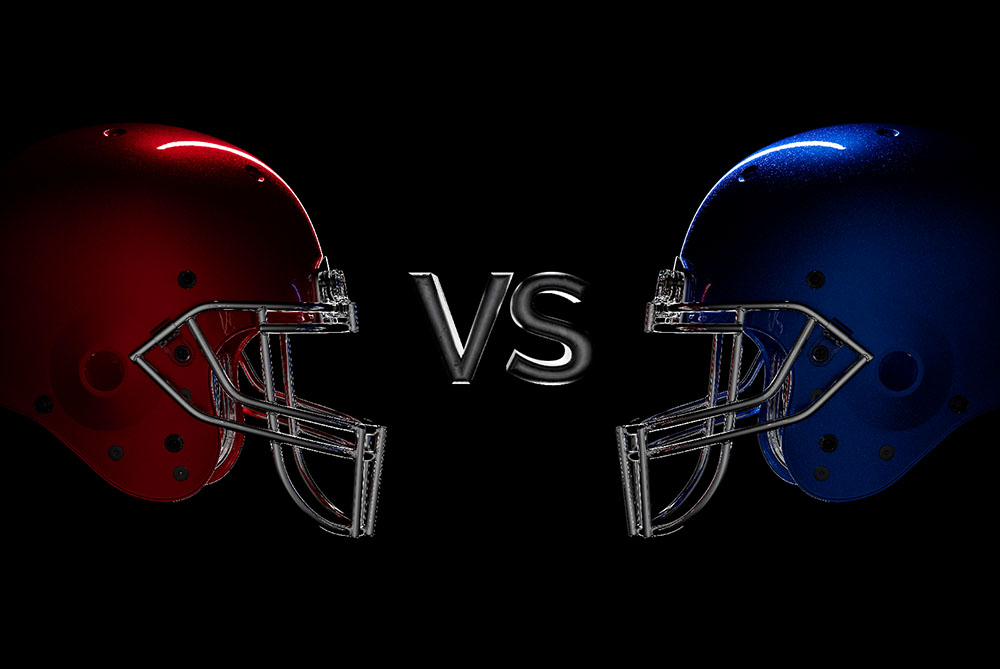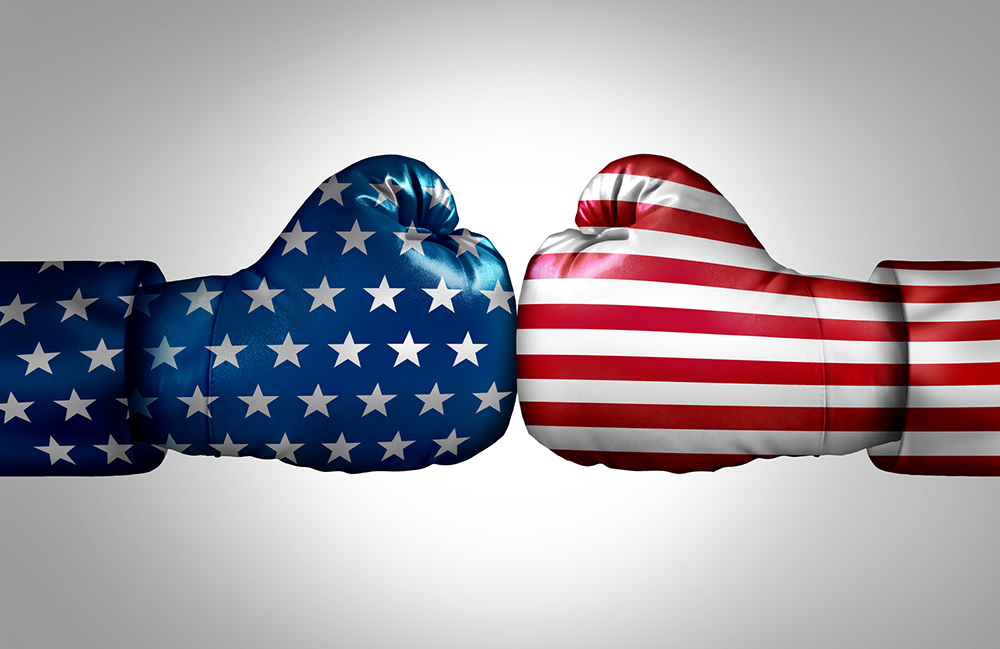
(Dreamstime/Swatchandsoda)
In 1887, the W. S. Reed Toy Company, based in Massachusetts, published a board game titled "The Game of Politics or, The Race for the Presidency." According to the instructions, two teams would compete to become president by winning elections to various offices on the way to capturing first the nomination and then state electoral votes. The first team to win the majority of electoral college votes won the presidency and, therefore, the game.
Since then, similar board games have been produced and marketed, but it is only in recent years that the intersection of presidential elections and the spirit of playing games has appeared to leap off the board and enter the real world.
Like so many others, I have been trying to make sense of the current state of politics in this country for some time. It can be easy to blame one person or set of people or political party or branch of government, but the truth is that several converging factors have contributed, resulting in people treating political elections without the seriousness they deserve and as if they were games.
This is not a column about which candidate is better than the other or which political party is less terrible. Instead, now that the 2024 primary season is well underway, I want to zoom out a little and look at the contemporary context of presidential politics more broadly.
First, it's worth recalling what the Catholic Church has to say about the purpose and function of politics. In the Second Vatican Council's Pastoral Constitution on the Church in the Modern World, Gaudium et Spes, we are told that political and juridical structures that order society and the human community are a good thing.
Furthermore, we are reminded that all citizens "should be mindful of the right and also the duty to use their free vote to further the common good," and that those who serve in elected offices on behalf of their fellow citizens are worthy of praise and support.
Advertisement
Unsurprisingly, it is the church's clear position that the purpose of government — and therefore the political process — is always about the promotion and protection of the common good. It is everyone's responsibility to contribute to this effort. "Citizens must cultivate a generous and loyal spirit of patriotism, but without being narrow-minded. This means that they will always direct their attention to the good of the whole human family, united by the different ties which bind together races, people and nations."
Gaudium et Spes continues:
All Christians must be aware of their own specific vocation within the political community. It is for them to give an example by their sense of responsibility and their service of the common good. In this way they are to demonstrate concretely how authority can be compatible with freedom, personal initiative with the solidarity of the whole social organism, and the advantages of unity with fruitful diversity. They must recognize the legitimacy of different opinions with regard to temporal solutions, and respect citizens, who, even as a group, defend their points of view by honest methods. Political parties, for their part, must promote those things which in their judgement are required for the common good; it is never allowable to give their interests priority over the common good. ...
With integrity and wisdom, they [politicians] must take action against any form of injustice and tyranny, against arbitrary domination by an individual or a political party and any intolerance. They should dedicate themselves to the service of all with sincerity and fairness, indeed, with the charity and fortitude demanded by political life.
The vision of political life and governance articulated by the highest authority in the church — an ecumenical council — reflects what Scripture has long contended about the manner in which the human family is invited to live according to God's will. Our politics is meant to reflect a community of interdependence, support, fairness, charity and so on — all of which is contained in the term "common good."
However, there is little today in our political climate that looks or feels anything like what the church describes here. Instead, we have individuals, communities and political parties that view politics as a zero-sum game, which can have only one winner and winning is the singular goal.
This mode of thinking is reinforced by language many politicians use to describe their own vision for what America should be, which often stands in direct contrast with the vision of the common good at the heart of Catholic teaching. The effects of this sort of rhetoric have been shown in academic studies to undermine "support for participatory inclusiveness and political equality" among certain voters.
The mentality expressed by this kind of rhetoric reflects not only the most cynical takes on citizenship or governance, but also a focus on tribal belonging and domination of so-called "enemies."

(Dreamstime/Skypixel)
There is no longer acknowledgement of legitimate but respected differences between politicians and voters, let alone any effort to see where there may be overlapping interests and values. In a zero-sum game, there cannot be two or more winners or a community of thoughtful compromise and interdependence. Instead, those who do not "win" are "losers" and should expect to be treated as such.
How did we get here? While I don't have an absolute answer, I do know that those who are most politically engaged, in any party, tend to spend a lot of their time online.
That everyone spends so much time on the Internet — for work, entertainment, communication with family and friends, etc. — has certainly affected the way people see the world and relate to others. While politics have always been partisan, there used to be a more human dimension to them, which was tied to face-to-face encounters and interaction with others.
Today, social media and other technologies mediate our engagement, removing the valence of complex and diverse humanity. They replace real people with caricatures, and authentic dialogue across difference with echo chambers of self-referential certitude.
Studies have shown that Republicans and Democrats alike find it increasingly difficult and stressful to talk about politics with those who disagree. Thus, fewer and fewer people are talking to anyone outside their narrowly defined affinity group or partisan tribe.
This dynamic has resulted in a kind of "video gaming" of the political process in the United States. If most of what we can call contemporary political discourse is being mediated through social media, the real stakes and actual humanity of others can be increasingly difficult to see. People who are not on "my team" are then more easily dehumanized and seen only as opponents to be defeated.
This reminds me of other digitally mediated phenomena that do not always feel real by those experiencing them, but do in fact have very real and often dire consequences.
People who are not on 'my team' are more easily dehumanized and seen only as opponents to be defeated.
For example, think about online gambling, which is often literally presented as a game. Oftentimes, there is real money on the line and many people, especially those who struggle with addiction, can suffer terrible consequences because it may be easy to forget about the real-world stakes.
Another example that comes to mind is modern drone warfare. Some military personnel, frequently located thousands of miles away from their "targets," talk about the video-game-like interface involved in piloting these weapons of war that kill actual human beings. The moral challenges this kind of technology poses are just beginning to be examined.
It seems to me that, for many people, politics in a digital age has felt like a game in a similar way. And the results have been more polarization, tribalism and dehumanizing rhetoric.
Additionally, as the world witnessed on Jan. 6, 2021, this is not something that merely exists online, but like gambling debts or those killed by drone strikes, there are real, material and physical consequences arising from reducing politics to a game.
Despite the conditions that have contributed to contemporary politics feeling like a game, it remains deadly serious and important. Instead of blindly cheering on one's political tribe as if the election were a football game and we were all just fans, we ought to think deeply about real issues, good governance, responsible leadership and accountability.
We need to stop treating politics like a game because the stakes are high, and the consequences are real.








